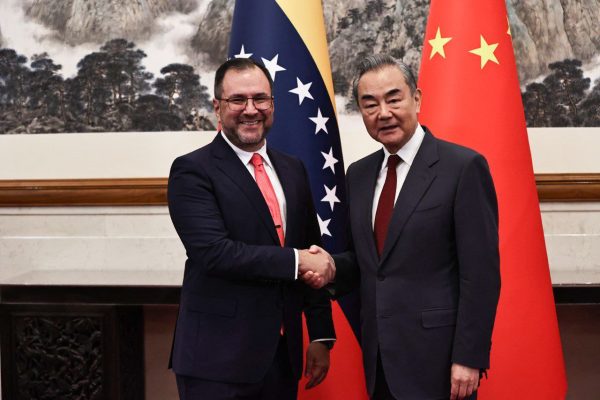


The escalating territorial dispute between Venezuela and Guyana has not only attracted the attention of CARICOM but also raised concerns about the involvement of China. Venezuela has been increasing tensions by organizing a referendum to annex the disputed territory of Essequibo. Despite reports of low turnout, President Maduro claims a mandate to seize Essequibo. The United States and Guyana insist on resolving the dispute through international legal channels [be798005].
China has played a significant role in supporting the Maduro regime, providing economic and technical assistance, selling weapons, and assisting in the modernization of Venezuela's tools of digital authoritarianism. In contrast, China's engagement with Guyana has focused on economic partnerships, including infrastructure projects and oil investments. The China National Offshore Oil Corporation (CNOOC) has a 25 percent stake in the Starbroek oil block, which has triggered Venezuela's coercive actions. The United States has reaffirmed its commitment to regional stability and has been supporting Guyana's defense capabilities. However, China-Guyana cooperation has increased, with China providing additional aid and support. China has sought to provide balanced coverage of the dispute in its messaging [be798005].
To compete with China and allow Guyana to engage on an even footing with both Beijing and Caracas, the United States needs a more robust strategy. This strategy should focus on security and defense cooperation, leverage development tools to compete with China on infrastructure and energy projects, and work to maintain interstate peace in the region. Increasing Foreign Military Financing (FMF) to Guyana and providing assistance through the U.S. Development Finance Corporation (DFC) are recommended steps [be798005].
The United Nations Secretary-General, António Guterres, has praised the Caribbean and Latin American region as a zone of peace and commended the avoidance of conflict between Guyana and Venezuela. Guterres highlighted the role of mediation in resolving disputes, specifically mentioning the mediation efforts of Prime Minister Ralph Gonsalves of St Vincent. The border dispute between Guyana and Venezuela, which dates back to 1899, was referred to the International Court of Justice by the UN Secretary-General. In provisional measures granted in December, the Court ruled that Guyana has sovereignty over the disputed territory unless the court determines otherwise. CARICOM, the Caribbean Community, has supported Guyana throughout the controversy. The UN Secretary-General's comments were made during his visit to St Vincent and the Grenadines for the summit of the Community of Latin American and Caribbean States (CELAC) [13fad96e].
Wayne Campbell, in a letter to the Jamaica Gleaner, argues that CARICOM should establish a rapid response military team to intervene in member states facing issues. Campbell highlights the success of the Argyle Declaration in defusing conflicts and brokering peaceful solutions. He specifically mentions the Venezuelan boundary dispute, which dates back to 1841 but intensified in 2015 after ExxonMobil discovered oil off the coast of Guyana. The International Court of Justice (ICJ) ruled that Venezuela should refrain from taking any action to modify the situation in the disputed territory, but Venezuela does not recognize the ICJ's jurisdiction. Campbell also references historical instances of instability in the region, such as the assassination of Haitian President Jovenel Moïse, the attempted coup in Trinidad and Tobago in 1990, and the overthrow of the government of Eric Gairy in Grenada in 1979. He highlights the economic woes in Venezuela and the booming economy of Guyana due to offshore oil reserves. Campbell suggests that a rapid response military team would be instrumental in addressing such regional conflicts and ensuring stability within CARICOM member states [83842dd4].